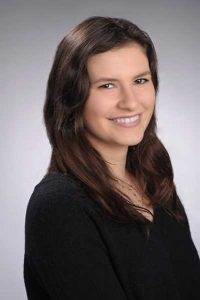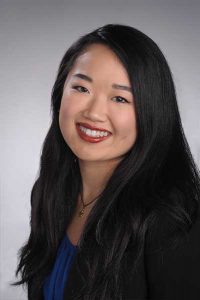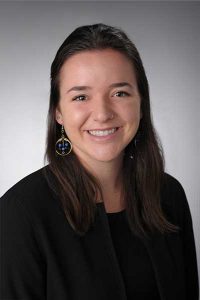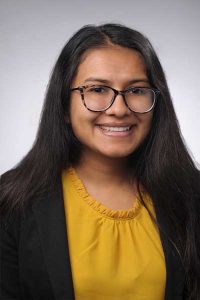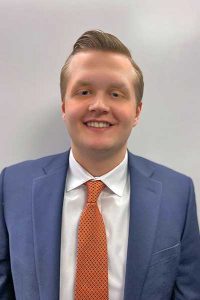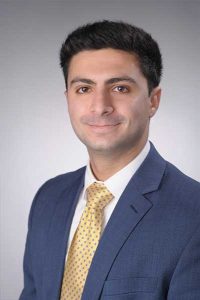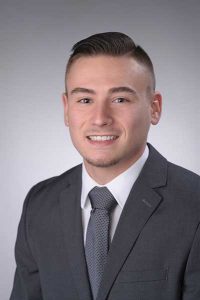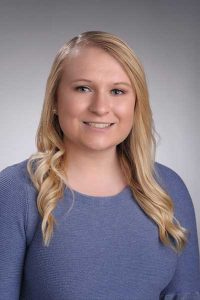Social Work News
New members inducted into Phil Alpha Honor Society
The Zeta Gamma Chapter of the Phi Alpha Honor Society for Social Work inducted 30 new student members and two honorary faculty members on Wednesday, April 29, 2020. Phi Alpha was formed in 1962 and recognized as a member of the Association of College Honors Societies (ACHS) in 2019. The Syracuse University Zeta Gamma Chapter was founded in 1996 as part of the School of Social Work’s 40th-year Anniversary Celebration. This year’s induction class represents the twenty-fourth group of students to be elected as members of the Zeta Gamma Chapter.
The ceremony featured an opening welcome by Dr. Carrie Jefferson Smith, Director of the School of Social Work, and a keynote address by Dr. Ken Marfilius, titled More Empathy, Less Greed, More Respect. Nadaya A. Brantley closed the ceremony by reading an original poem written specifically for this occasion, titled New Beginnings!
Fourteen BSSW students were inducted this year:
Arielle Alford
Iryna Chushak
Amber Deyo
Hayley Feuchs
Sarah Gelfond
Emma Henriksen
Ronni Isenberg
Jennifer Jacobs
Katherine Koehler
Sarah Millward
Jacqueline Peacock
Mark Sukonik
Sally Jo Van Ostrand
Emily Wagner
Sixteen MSW students were inducted this year:
Kaitlyn Dawn Budge
Heather Bell
Melissa Hayes
Caroline Laws Hyneman
Gabrielle Denise Nicolini
Chanelle Peart Jones
Alyssa M. Prawl
Amy O. Redmond
Andie C. Riffer
Gillian Rowan Riggall
Julia Elise Sanders
Danielle S. Smith
Kaeley Anne Spicer
Carmen Viviano-Crafts
Judy Ann Walsh
Nicole Elizabeth Wolpink
Congratulations to all members of the Zeta Gamma Chapter of Phi Alpha honor society in the Class of 2020:
BSSW Graduates:
Elise Bojanowski
Amber Deyo
Hayley Feuchs
Tess Harper
Molly Murphy
Madison Oliva
Julia Pion
Marceli Rocha-Rocha
Alicia Marie Smith
Mark Sukonik
Alexandra Tulowiecki
MSW Graduates:
Kaitlyn Dawn Budge
Heather Bell
Jessica DeLutis
Lisa Dussing
Christina Firnstein
Arlaina Harris
Melissa Hayes
Caroline Laws Hyneman
Haleigh Johnson
Michaela Marotti
Kelly Marriott
Gabrielle Denise Nicolini
Suzanne Parsons
Alyssa M. Prawl
Gillian Rowan Riggall
Desiree Rivas
Ellan Ryan
Julia Elise Sanders
Danielle S. Smith
Kaeley Anne Spicer
Kylene Stevener
Carmen Viviano-Crafts
Cassandra Whitcomb
Faculty members named honorary members of Phi Alpha
Eevie Smith
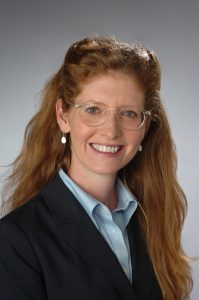 Eevie Smith studies social work and youth care practice in residential treatment centers for children (RTCs). Her most recent study investigates the unique challenges and opportunities of hiring, training, and retaining an expert workforce in RTCs where client violence, intensive regulatory oversight, and moral distress are an everyday part work. Eevie is leading an effort to design and pilot a supportive group intervention to help youth care workers reduce burnout and turnover and better manage the demands of their important work. Eevie has practiced in a range of social work settings, including residential treatment, harm reduction outreach with substance users, supportive and transitional housing, and therapeutic foster care. She loves teaching courses on social work practice, human diversity, and human/animal interaction, and was the 2019 recipient of the Falk College Faculty of the Year Award for Excellence in Teaching.
Eevie Smith studies social work and youth care practice in residential treatment centers for children (RTCs). Her most recent study investigates the unique challenges and opportunities of hiring, training, and retaining an expert workforce in RTCs where client violence, intensive regulatory oversight, and moral distress are an everyday part work. Eevie is leading an effort to design and pilot a supportive group intervention to help youth care workers reduce burnout and turnover and better manage the demands of their important work. Eevie has practiced in a range of social work settings, including residential treatment, harm reduction outreach with substance users, supportive and transitional housing, and therapeutic foster care. She loves teaching courses on social work practice, human diversity, and human/animal interaction, and was the 2019 recipient of the Falk College Faculty of the Year Award for Excellence in Teaching.
Dr. Smith’s devotion to teaching the important yet challenging topics, of human diversity and social justice, is highly respected by her colleagues and students. She successfully engages every student and helps them understand the responsibility of all students, including those of a dominant group, have “to be actively involved in undoing racism and oppression.” In all her courses, Eevie actively listens and seeks to understand her students’ points of view to enhance her teaching while also making changes to reflect the most current, effective and relevant research-based content. Her goal is to prepare her students to make “reasoned practice decisions” that are both evidence-based and consider a client’s reality.
Tracey Musarra Marchese
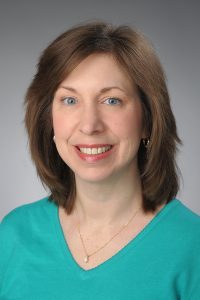 Tracey Musarra Marchese received her Master of Social Work (MSW) degree from Rutgers University in 1993. She is a Licensed Clinical Social Worker (LCSW) in New York and New Jersey. During her 27 years of experience, Tracey has worked in various health and mental health settings, as well as in private practice. She has developed expertise in trauma, dissociation, and mind-body wellness. She is a recognized expert in the treatment of complex trauma and the use of Eye Movement Desensitization and Reprocessing (EMDR) psychotherapy. She is one of only about 120 EMDR trainers in the world. Tracey is an EMDR-certified therapist and EMDRIA-approved EMDR consultant and trainer of EMDR Therapy. She is also a certified perinatal bereavement counselor, has advanced training in Evolving Thought Field Therapy (EvTFT), and is Intermediate Level trained in Somatic Experiencing.
Tracey Musarra Marchese received her Master of Social Work (MSW) degree from Rutgers University in 1993. She is a Licensed Clinical Social Worker (LCSW) in New York and New Jersey. During her 27 years of experience, Tracey has worked in various health and mental health settings, as well as in private practice. She has developed expertise in trauma, dissociation, and mind-body wellness. She is a recognized expert in the treatment of complex trauma and the use of Eye Movement Desensitization and Reprocessing (EMDR) psychotherapy. She is one of only about 120 EMDR trainers in the world. Tracey is an EMDR-certified therapist and EMDRIA-approved EMDR consultant and trainer of EMDR Therapy. She is also a certified perinatal bereavement counselor, has advanced training in Evolving Thought Field Therapy (EvTFT), and is Intermediate Level trained in Somatic Experiencing.
Tracey is a Professor of Practice in the School of Social Work at Syracuse University, where she teaches courses in micro and macro social work practice to senior undergraduate students, and courses in child and adolescent trauma, complex trauma, and death, dying and terminal illness in the MSW program. She also holds a clinical faculty appointment in the Department of Psychiatry at Upstate University Medical Center, and she has a private practice in Syracuse. In 2019, Tracey was honored as the Falk College Faculty of the Year for Excellence in Service. This Award recognized her service to the School of Social Work, Falk College and Syracuse University, as well as to the local Syracuse community.
Students Continue Treating Clients Through Virtual Therapy
A Syracuse University Story by Jaclyn D. Grosso originally published on April 17, 2020.
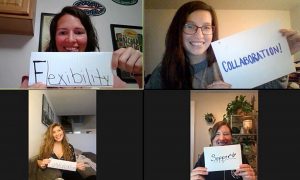
Continuity of care is essential for clinicians who are committed to treating a variety of conditions. With the shift to virtual classrooms, fitness apps and telehealth during the new coronavirus pandemic, clinicians have pivoted quickly to maintain standards of therapy care and avoid abandoning their patients during this high-stress time.
“Barriers definitely exist for many of the clients I am treating,” says Tess Tracy, a social work graduate student in Syracuse University’s Falk College. Tracy works with third- and fourth-graders as part of an internship to fulfill her master’s degree. “Families sometimes have only one phone for mode of communication. Many don’t have a computer or internet access at home. Parents are trying to work. It can be really challenging to get that full counseling.”
When New York State announced it was closing schools on March 16, students who are enrolled in clinical internships had to quickly transition to providing teletherapy with their clients in Onondaga County, who range from 6 to 70 years old and have social and emotional health issues, as well as behavioral health concerns, depression and substance addictions. Working with local partners at BOCES and Liberty Resources, Falk College organized distribution of Chromebooks, arranged free internet service and set up Google Classroom for clients when they learned schools would be closing. While Tracy normally works with eight students during the school day, she has seen only three of them for virtual counseling.
“When it worked out to see my client, I was sobbing. I miss them so much,” Tracy says. “When I get little messages, they are a glimpse of hope.”
Reimagining Delivery of Services
The COVID-19 pandemic exposed an already vulnerable population who may have difficulty accessing therapy due to cost, transportation, and their residential location.
“What’s clear is that although this is really a great way for individuals to access therapy, the inequity in our client base is also playing out,” says Tracy T. Walker, director of field instruction at Falk College. “Individuals may have to choose if they use phone minutes for therapy or connecting with their mom. As we move forward, further inequities will be exposed in terms of who can receive services. How do we look at policies, and what is essential in a person’s life as a basic need versus a luxury?”
While students continue to weave the basic tenets of therapy into their distance internship experiences, other benefits of the transition are quickly emerging, Tracy says. While she misses the face-to-face interactions and conversations before an in-person class, her classmates are really opening up and sharing information through multiple lines of communication.
“We’re talking even more and sharing information,” Tracy says. “It’s been great. We used to have time to talk before classes, but now we have even greater lines of support and have made more of a community. The overall positivity has gotten people to grow and share, be more creative and think about the opportunities.”
Walker and her colleagues are already exploring how to incorporate this new form of teaching into the educational plan moving forward. While the telehealth piece is not new, the transition has revealed alternative ways to deliver services. “The impact is that telehealth is not so unknown, and our students are now part of this first wave of professionals in a system that will transform and shift,” she says. “One of the changes that may occur is an examination of policies and their impacts, so we avoid setting up another system of inequity in our society.”
As this crisis starts to shift from acute health and medical needs, mental health professionals—especially social workers—will be the front line of services. “This is a great example of how crisis equals opportunity,” Walker says. “How do we reframe this to see what we can due to innovate, shift and enhance the way that we teach and do our work.”
Walker recognizes that the COVID-19 situation has forced both agencies and clinicians to quickly innovate and prepare students so they are equipped with the skills to best serve clients.
“In social work practice, we build relationships and connect with clients. This transition isn’t the same kind of ending process with a client,” says Walker. “The ending and goodbye process can be scary. When it’s done well, people can move on in a strength-based way and feel good about it. We can’t do it the way we’ve done it before. I am so impressed with what we’ve been able to do.”
Human development, addictions studies are the base for Falk senior’s social work career
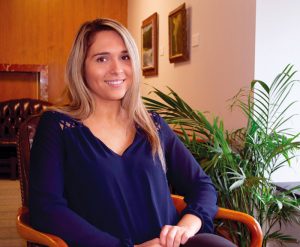
In her hometown of New Haven, Connecticut, senior Rachel Brennan ’20 was encouraged to join the Orange family when she heard alumni talk about their time at Syracuse University. The academic disciplines in Falk College convinced Brennan that Syracuse University was the place for her. “I remember sitting at an informational meeting about the College and thinking that I was interested in every single major offered,” she adds.
As a senior human development and family science major with a minor in addiction studies, Brennan’s time at Syracuse University has given her exciting experiences both far and near—from study abroad in Sydney, Australia at the University of New South Wales, to a summer internship at Yale University’s Program for Recovery and Community Health (PRCH).
Brennan, who plans to pursue a Master of Social Work degree and a career in social work, originally enrolled as a social work major. But she discovered a different path to graduate school. “After reading the courses offered in Human Development and Family Science (HDFS), I decided to switch my major. I believed the HDFS courses would give me a great foundation in understanding theory and practice when working with children and families that I could then apply to my social work graduate study and field placement,” explains Brennan.
Following her gut helped Brennan discover a passion for research, inspired by her coursework. “I was interested in researching the current opioid crisis after taking multiple courses focused on drug use,” she says. “I had gained a concrete understanding on the impact substances have on the brain through my rigorous courses, and I was drawn to learning more about the impact using opioids can have on an individual’s personal life and overall emotional wellbeing.”
As an intern in the PRCH, Brennan interviewed individuals recovering from opioid addictions. The study examined the effectiveness of different treatments for substance use disorders provided Connecticut Department of Mental Health. “The interview packet was extensive and asked personal questions about how their addiction took form, if they have co-occurring disorders, and if their substance use impacted relationships with their loved ones,” Brennan explains.
“Working hands-on with people struggling with substance use disorders was a powerful experience and I hope to continue researching the impact of addiction on children and families throughout my graduate studies and future career,” Brennan adds.
After graduation, Brennan plans to pursue a Master of Social Work following a clinical track. “I hope to work in out-patient mental health clinics while working towards my LCSW,” she says. “My end goal is to eventually have my own private therapy practice where I work with children and families impacted by addiction and other traumatic experiences.”
Interpreting Coronavirus News for Onondaga County’s Deaf Community
A Syracuse Story by Mary Beth Horsington originally published on April 16, 2020.
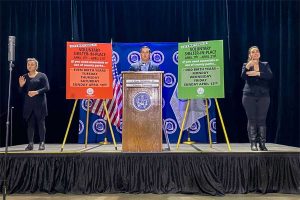
Russell had convinced county representatives that closed captioning in English would not meet the needs of the vulnerable Deaf population because American Sign Language (ASL) is a visual language with no written form. Cogan was initially hesitant. “I had never done platform interpreting and you have all kinds of cameras on you,” she says. But when all other interpreters were ruled out, she agreed.
Cogan herself is Deaf, so the process is quite complicated. She stands on the stage to the right of the podium and Monu Chhetri, a Nepalese Deaf interpreter, stands to the left. Chhetri’s role is critical in serving the needs of Syracuse’s growing population of Nepalese refugees with hearing loss, which uses Nepalese Sign Language as its primary language. “Certified hearing interpreters sit on the floor below us,” Cogan explains. “They do the listening and ‘feed’ us the information. We then interpret the information from spoken English to American Sign Language and Nepalese Sign Language. It was a bit nerve-wracking at first, but as I grew more confident in my skills I became more relaxed in the press conference environment.”
Cogan says she sometimes “goes overboard” with her physical expressiveness while interpreting. “It is critically important to me that I express to the Deaf community the seriousness of COVID-19, and I do that by visually matching the tone of the speaker,” she explains. “A Deaf person cannot hear tones or emotions, so facial expressions and body language are visual communication modes.”
The press briefings usually last an hour, and the process can be grueling. “It’s akin to running a marathon,” says Cogan. “But what has really impacted me about this whole experience is that if I’m this exhausted, how much more exhausting must it be for the frontline workers, the doctors, nurses and EMTs? It is a sobering reality to know that they are the ones keeping the patients alive and risking their own lives. At the same time, I watch Ryan McMahon and the county health commissioner, Dr. Indu Gupta, work tirelessly to curb the spread of COVID-19. They really do care about this community, and I could not be more proud to be a Syracusan.”
Discovering an Identity
Cogan’s parents discovered she was Deaf when she was 15 months old. “My parents made a decision to use cued speech rather than ASL,” she says. “Cued speech is a visual mode of communication that uses hand shapes and placements in combination with the mouth movements of speech. I learned how to read and write and speak to the best of my ability, which boosted my language skills and opened many opportunities for me.” But when she was 12 years old, she learned ASL from friends who attended the BOCES Deaf Program at Split Rock Elementary School. “That’s where I really discovered my Deaf identity,” she says. “Since then, ASL has become my primary language and English is second.
“My identity went from a person who was a little d deaf to a big D Deaf. I realized I had to advocate and fight for the rights of a population that was being failed by a system that is ‘hearing’ or ‘ableist’ driven. Little d means you try to identify with the hearing world and don’t really associate with the Deaf community. Big D means you identify culturally with the Deaf community and do not see yourself as having a disability. We also prefer to use the term ‘Deaf’ rather than ‘hearing impaired.’”
A Central New York resident since age 5, Cogan was a stay-at-home mother for 20 years before completing her bachelor’s degree in community and human service at Empire College in 2016. She then worked for Aurora as a care manager, advocate and interpreter for Deaf children and children of Deaf parents. “It was very rewarding, and I felt the call to go back for more schooling,” she says. “My grandfather was an alumnus of Syracuse University and I’ve always wanted to follow in his footsteps. I also know that Syracuse University’s School of Social Work at Falk College prepares students for licensure and is one of the best accredited programs in New York state.”
The Right Place
As a Syracuse University student, Cogan believes she is exactly where she needs to be. “Since I am a social worker at heart, I knew I had to finish my degree here. Syracuse provides the best learning experience and cultural humility in working with people of varying disabilities,” she says. “I absolutely love all the professors I’ve met and taken classes with, especially Jennifer Genovese and Keith Alford, who made it his mission to make sure my accommodations were being met in class.” Genovese says that Cogan embodies the social work profession’s core values of service, social justice, dignity and integrity. “Grace Cogan is an inspiration,” she says. “She does not see barriers for herself or others, she sees opportunities. I value her endless energy, intellect, positivity, insight and thoughtful contributions to the classroom. She has expanded my vision of what it means to be an educator, and she has inspired me to be a better professor.”
I knew I had to finish my degree here. Syracuse provides the best learning experience and cultural humility in working with people of varying disabilities.
Cogan’s professional goals have been shaped by her life experience. “Many people don’t realize the oppression that Deaf people face on a daily basis,” she asserts. “My dream career would be working as a Deaf therapist or as a school therapist in Syracuse, where we desperately need clinical therapists. I want to work directly with Deaf families, children and adults in their own language and culture to help foster healthy changes in their lives.” Cogan’s commitment to the Deaf community is truly remarkable, says Maggie Russell. “Grace embodies selflessness, and I am honored to team with her and be part of her professional journey.”
Becoming an alumna of her hometown University will be a dream come true for Cogan. “There’s no place like home, and where else can you get half moon cookies, little Italian restaurants, beautiful scenery, and the Regional Market?” she says. “Syracuse University has a place in my heart and my family—we bleed salt, Irish and Orange!”
Social Gerontologist Maria Brown Shares Advice on Caring for Aging Parents During a Pandemic
A Syracuse Story by Lisa Maresca originally published on April 16, 2020.
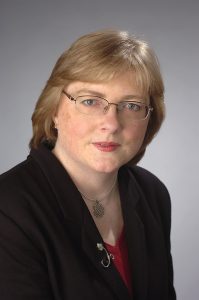
As people all over the world deal with the coronavirus pandemic, many wonder how to care for aging parents. Adults aged 60 or older, especially those with severe chronic medical conditions, are at higher risk for more serious coronavirus illness and death.
Maria Brown, an assistant research professor at the David B. Falk College of Sport and Human Dynamics and faculty associate in the University’s Aging Studies Institute, offers advice on how to help care for aging parents or family members.
Stay in Touch
Calling or video chatting is a great way to comply with social distancing recommendations while also checking in with aging parents. For those who don’t have computers or smart devices, Brown recommends increasing the frequency of telephone calls. During these calls, you can ascertain both how they are doing with the isolation and what kinds of assistance they need, as their feelings and needs will change over time.
“If they do have smart devices, you can help them download and set up apps for video calls with you and with other members of the family,” says Brown. “In some instances, such as when you and your parents have the same type of smart device, like an iPhone, a video call can be as simple as a regular call, and all they have to do is answer the call as they normally would. In other cases, they may need an app like Skype or Google Duo.”
Schedule specific times of day to call so they have something to look forward to throughout the day.
Grocery Shop
Brown recommends offering to do the grocery shopping for your parents and carrying the bags to their doorstep. Alternatively, you could help them place online orders through delivery services such as Instacart that can be delivered to their home.
Watch Out for Scams
Trying times can bring out the best in people. Unfortunately, they can also bring out the worst. The Federal Trade Commission (FTC) has issued guidelines for avoiding coronavirus-related scams. Talk to your parents about these scams and share some of the FTC’s tips:
- Don’t respond to texts, emails or calls about checks from the government.
- Ignore online offers for vaccines or home test kits.
- Hang up on robocalls.
- Do your homework when it comes to donations.
Encourage Older Adults to Stay Busy
Remaining at home all day poses challenges for many people, but it can pose greater risks for older adults. Brown says that the inactivity that can come with being confined to the home can cause declines in physical health and in physical abilities. “Older adults are also at greater risk of developing depression in social isolation, and their elevated risk for bad outcomes from this virus can cause higher levels of anxiety and lead to sleep difficulties,” Brown says.
There are plenty of mental and physical activities your parents can engage in while at home, including reading books, playing board games or going for walks.
Seek Help from a Distance, If Necessary
If you don’t live near your aging parents, you can assist them from afar by reaching out to their local friends or neighbors who can connect with them in person (using social distancing rules, like visiting through a door or window, or standing 6 feet or more apart outside) and help you monitor how they are doing.
In cases where parents need more support than you can provide, you may want to reach out to their county’s Area Agency on Aging (AAA). Their local AAA’s homepage should have a message specific to the COVID-19 pandemic, particularly if their county health department has a stay-at-home order in place.
Communicate Thoughtfully
In some cases, older parents may be resistant to staying at home or following social distancing directives. This can be a challenging scenario, particularly if your message is in conflict with other messages they’re receiving about the seriousness of the coronavirus threat to them as individuals. For some elderly parents, the effectiveness of your message may depend on their comfort level with having others run errands for them, and on whether they have family nearby to provide support or must instead rely on strangers.
How you communicate with an elderly parent who doesn’t feel at risk really depends on your relationship with that parent and the type of information that appeals to their knowledge level and personality. In families with multiple adult children or adult grandchildren, it might be better to have family members with whom the parent has historically been more open to challenging conversations be the ones to deliver this message; or, depending on the parent, it may work better to have a consistent message coming from multiple family members.
For older adults who see themselves as healthy and have a good understanding of health information, consider presenting them with the statistics like the age distribution of people who have died from the coronavirus.
For Aging Parents with Cognitive, Visual or Hearing Challenges
Brown also suggests reviewing Claire Pendergrast’s tips for communicating with older adults experiencing hearing loss, vision impairment or cognitive disabilities. Pendergrast, a Ph.D. student in sociology at Syracuse University, offers concrete advice.
For individuals with cognitive challenges:
- Repeat essential information.
- Use plain language.
- Focus on important meaning of the information.
For individuals with visual challenges:
- Make information easy to see and read by using a large font, high contrast and spacing between lines.
- Reduce the amount of text.
- Provide visual and audio information when possible.
For individuals with hearing challenges:
- Limit background noise.
- Speak clearly with more volume.
If your parents fall into the vulnerable population category, following these tips should help ease the difficulty of caring for them during this challenging time.
The Passion and Power of Social Work in a Changing World
A Syracuse University story by Eileen Korey originally published on Tuesday, April 7, 2020.
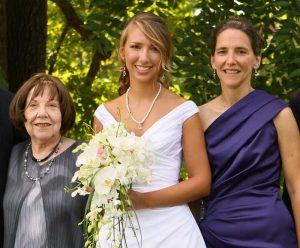
As communities face a new kind of collective trauma due to the spread of COVID-19, the need for social distancing and economic hardships unforeseen by many, there remains inestimable value in what social workers offer to individuals and society. Social work is one of the fastest-growing professions in the United States, with the number of people employed in social work positions projected to grow by 11 percent over the next decade, according to the Bureau of Labor Statistics.
When Ona pursued her graduate degree in the 1950s, she did so to become more independent. “In those days, a young woman had to live with her parents or you were considered “loose”—unless you were in graduate school,” Ona recalls. “At first, I thought I would study philosophy, but the department had no scholarships available. So, I opted for social work.”
She ended up drawn to the theoretical side of social work, understanding how systems function, from family systems to societal systems. The retired Syracuse University associate professor of social work contributed to and co-edited the book “Bringing Systems Thinking to Life: Expanding the Horizons for Bowen Family Systems Theory” (Routledge, 2010).
“The social work profession is about understanding the way systems work, either inside of a person or a family or a community,” Ona explains. “It’s about understanding how none of us stands alone. It’s about understanding how we interact. Like a mobile moving through space, each part of the mobile is responsive to how the other parts move. And if you are working with one person in a family, it can have an impact on the whole family.”
Ona says she grew up believing that it was imperative to “leave the world a better place”—influenced by her own service-oriented parents and her Jewish background (the concept of the Hebrew phrase “tikkun olam” is to help repair the world through acts of social responsibility). “I picked a profession that would let me do that,” she says. “For example, I approached teaching as a way to help people think and take responsibility for their choices and actions, much more than learning a set of facts.”
Daughter Randi recalls the civil rights marches that Ona took her to as a child as part of a larger influence on her social work career choice. “For me, social work is about social justice on both micro and macro levels. You can help individuals and change the world….one person at a time.” She recalls learning the concept of “private problem, public issue” in one of her first classes at Syracuse University. “You look at an individual who comes before you with a private problem—maybe they can’t pay their rent—and when you start to help that individual, you recognize a social justice need, a systemic problem that needs to be addressed.”
Randi graduated from Syracuse University with an M.S.W. degree in 1990 and began working at Vera House, a not-for-profit agency that provides services for those experiencing domestic and sexual violence. Today, she is the agency’s executive director.
She developed a three-credit, a master-level course in family violence that is still being taught in the Falk College School of Social Work, and she is a member of the Chancellor’s Task Force on Sexual and Relationship Violence.
Though she must devote herself mostly to administrative and leadership work, she still picks up the 24-hour support line at Vera House to stay connected directly to the people her agency serves. “I still learn things from them. Vera House is a calling. This is the work I was put on this earth to do. It’s who I was born to be.”
Randi’s daughter Sonja says she was similarly “called,” but in a different way. She remembers volunteering at Vera House when she was in high school, watching her mother excel at handling crisis calls, and deciding that stress just wasn’t for her. Her own path was more influenced by helping to care for her great-grandmother after a debilitating fall. “I love the elderly, so I got a certificate in gerontology and ended up doing hospice, palliative care and end-of-life work.”
After receiving both her B.S.W. (2009) and M.S.W. (2010) degrees at Syracuse University, she realized how broad her options were with an advanced social work degree. She began working at Catholic Charities of Onondaga County, where she was at first focused primarily on homeless services but is now chief performance officer, supporting agency programs to better serve the most vulnerable in the Syracuse community.
“I’m blessed to be in a job that I love,” says Sonja, the mother of two young children, ages 4 and 6. “If we won the lottery, I would still come to work every day. I know that I’m contributing and making a difference.”
Prior to the COVID-19 crisis, Ona, Randi and Sonja would get together every weekend, with family, to continue to strengthen the generational bonds. A tradition they plan to continue once the social distancing protocols are no more. “It’s important to us to be intentional about that,” says Sonja. “Especially for my kids.”
From weekend dinners together to changing the world in their own separate ways, the Bregman women remain Generations Strong. “Generations are essentially building blocks for the vision of the world I would like to see,” says Randi. “With each generation standing on the shoulders of those who came before.”
Creating a Trustworthy Environment for Students to Learn Empathy
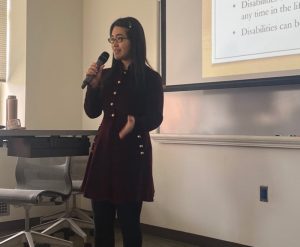
In a world where embracing differences and understanding diversity is more important than ever before, Professor Xiafei Wang wants students to embrace others’ differences and take a stance on social justice. But her first goal for students is to gain a deeper understanding of their individual self and presumptions they hold so they can have an open conversation. That’s her focus in “Human Diversity in Social Contexts” (SWK 328), a course she teaches in the School of Social Work at Syracuse University’s Falk College. “I hope students can spend some time to think about how their own personal experience influences their values and how they interact with others,” Wang says. “The second goal is that I hope my students can be curious or have sympathy for people who are different who do not have privileges, privileges that they have or have totally different or disadvantaged living experiences.”
Megeno Adbi, a sophomore Social Work major, took SWK 328 to explore the depth of diversity. Adbi feels Professor Wang allows students space to grow.
“Professor Wang is amazing, she doesn’t hold anything back when speaking on such topics, she will emphasize to us in any aspect,” Adbi explains. “She understands that people have different upbringings, but in her class she wants people to be at the same level of understanding.”
Professor Wang’s decorated background provides her students with a unique look at diversity. Wang served as a research assistant “Evaluation of Chinese National Working Committee on Children and Women & the United Nations Children’s Fund Joint Child-Friendly Spaces Project in China,” funded by the United Nations Children’s Fund. Working with refugees who were persecuted in their own country for their different religious practices, Professor Wang shares this experience with her students to encourage them to embrace differences.
Adbi believes the benefits of taking a diversity course with Professor Wang who Adbi described as “humble, gentle and understanding person” allows her to enhance his understanding of how important diversity is not only to the field of social work but to all aspects of daily life.
Professor Wang was raised and went to college in China and experienced an authoritarian-style way of teaching that she felt was isolating and unapproachable. In the courses she teaches, she strives to create a safe, trustworthy space for students to discuss aspects of diversity, including white privilege and systematic structural barriers that marginalized populations face, encouraging her students to be agents of change.
“As social work instructors, we need to think about how we approach students if we want to truly value diversity,” Wang says. “It’s not just how we teach a course, but how we value it in our daily life and how we meet our students’ needs.”
Graduates of Falk College’s School of Social Work promote the wellbeing of communities and social justice through careers in gerontology, mental health and medicine, social services agencies, advocacy organizations, schools, court systems, and many others. For more information about the School of Social Work, visit the Falk College website.
2020 Falk College Scholars Announced
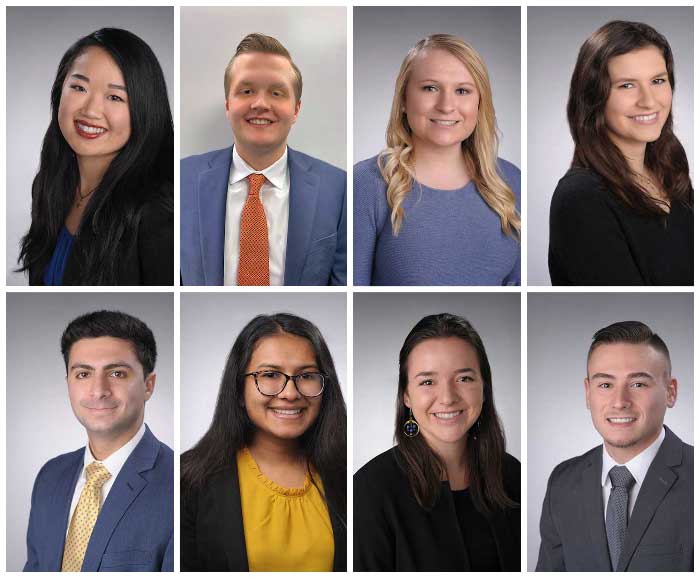
Falk College Scholars from the Class of 2020 represent undergraduate students in the College who display academic excellence, exceptional campus and community engagement, independent research and creative work, evidence of intellectual growth and/or innovation in their disciplinary field, and personal integrity.
“Congratulations to our students named Falk College Scholars. Their outstanding accomplishments exemplify academic excellence, creativity, personal achievement and commitment to the campus and local communities, and they are exceptional role models for their peers,” says senior associate dean of academic affairs, Eileen Lantier.
The Falk Scholars from the Class of 2020 include:
April M Hill, Nutrition
Alizee Mclorg, Public Health
Bijal Patel, Public Health
Connor David Monzo, Sport Management
Brandon M Pollack, Sport Management
Nicholas Richard Riccardi, Sport Analytics
Alexandra Tulowiecki, Social Work
“The combination of their outstanding academic accomplishments and dedication to sharing knowledge and experiences outside of the classroom to engage the world represents what Falk College is all about: social responsibility, social justice and service to others,” adds Falk Dean, Diane Lyden Murphy.
Darlene Medley, Maarten Jacobs Receive 2020 Rubenstein Social Justice Awards
By Emma Henzes ’20
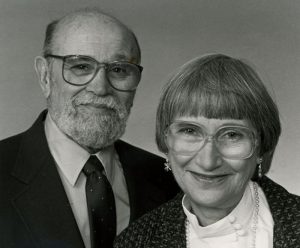
In commemoration of National Professional Social Work Month during March, the School of Social Work in Falk College awarded its annual Dan and Mary Lou Rubenstein Social Justice Awards to Darlene Medley from Families for Lead Freedom Now and Maarten Jacobs, MSW from the Allyn Family Foundation.
Darlene Medley, Families for Lead Freedom Now
Following the devastating news that two of her children had been permanently impacted by deadly lead paint, which is present in numerous low-income Southside of Syracuse communities, Darlene Medley became one of the organizing members of Families for Lead Freedom Now. The organization aims to increase awareness about the persistence of lead poisoning in poor communities, to respond to the needs of families impacted and to eradicate the problem for future generations.
Darlene’s actions to fight for her children and her neighbor’s children to bring about a more socially just response to this issue reflect the spirit of the Dan and Mary Lou Rubenstein Social Justice Award and are deserving of recognition.
Maarten Jacobs, MSW, Allyn Family Foundation
At the Allyn Family Foundation, Maarten Jacobs is co-developing a Community Prosperity Initiative, which focuses on disrupting concentrated poverty in targeted Syracuse neighborhoods by empowering residents to fulfill their full potential and contributing to the wellbeing of their families and the revitalization of their neighborhoods.
Before working for the Allyn Family Foundation, Maarten was the executive director of the Near Westside Initiative (NWSI). In that position, Maarten worked to ensure that the community’s best interests were represented and that the neighborhood residents of the Westside were actively engaged in the revitalization taking place in their neighborhood.
Maarten’s efforts in community empowerment and fostering community members to live their best potential by disrupting the fetters of concentrated poverty reflect the spirit of the Dan and Mary Lou Rubenstein Social Justice Award and are deserving of recognition.
Presented for more than 30 years, the Rubenstein Social Justice Award is given in honor of the late professor Dan Rubenstein, a former faculty member in the School of Social Work and his late wife, Mary Lou, a former school social worker. Recipients of this award are role models whose courage and strength inspire others to stand up—and step up—to advocate and be a voice in the Syracuse community. The values of social justice are integral to their daily lives. The work of honorees each year, by their individual and collective examples, exemplify the true spirit of the Rubenstein Social Justice Award.
Faculty, staff, alumni partnership exemplifies how the Orange community is supporting others
By Emma Henzes ’20
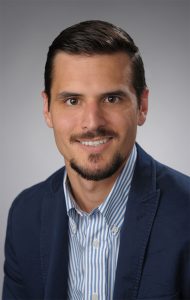
In the time of need, the Syracuse University community comes together. SU staff, faculty, alumni and students are doing their part in the fight against COVID-19.
Ken Marfilius, a faculty member in the School of Social Work, is doing his in part in what he calls a “grassroots movement” to help the battle with Coronavirus.
Around two weeks ago, Budmen Industries in Liverpool, N.Y., owned by Issac Budmen ’12 and Stephanie Keefe ‘12, made the decision to open-source the files for creating a 3D Face Shield that provides protection to health-care workers dealing with COVID-19 cases. They offered the design for free to the public to help healthcare organizations and front-line workers immediately. Lynn Greenky, an assistant teaching professor in the College of Visual and Performing Arts’ (VPA) saw a local news story about the Budmen Design and reached out to her colleagues, asking if Syracuse University’s 3D-printing facilities could help produce the shields. VPA School of Design director James Fathers sent an email to Chris Prior, the director of fabrication shops for VPA, who works with the 3D printers. The word of the project traveled around campus gathering university partners from all corners.
Marfilius volunteered to run Budmen Industries’ communications operation. He has been helping with the influx of emails, social media interactions (@budmenind), media inquiries and continuously connecting registered 3D face shield producers with healthcare organizations in their geographic region. “We are running this grassroots operation 24/7. As you can imagine, things are changing by the minute,” Marfilius said.
The entire CNY operation is funded by donations and Marfilius mentioned Budmen Industries is not profiting. Their GoFundMe account goal initially started at $10,000 but has been surpassed at over $24,932. You can donate to the GoFundMe here.
The 3D face shield files have been downloaded over 20,000 times and climbing, according to Marfilius. “We have folks reaching out from all parts of the world and we have been inspired by the capacity of the human spirit to join us in this fight against COVID-19,” Mafilius said.
Tracy Walker, Director of Field Relations in the School of Social Work, and a colleague of Marfilius, serves on the Board of Directors at Huntington Family Centers and worked with Marfilius to get face shields for their pantry staff who are still ensuring our most vulnerable have food.
Marfilius said as of Wednesday, April 1, the Budmen Design has undergone review in a clinical setting and is recommended when fabricated as instructed by the US Department of Health and Human Services – – National Institutes of Health. Marfilius reported greater than 271,954 3D face shields being requested, and they have registered 2,316 3D face shield producers.
Page 15 of 31

